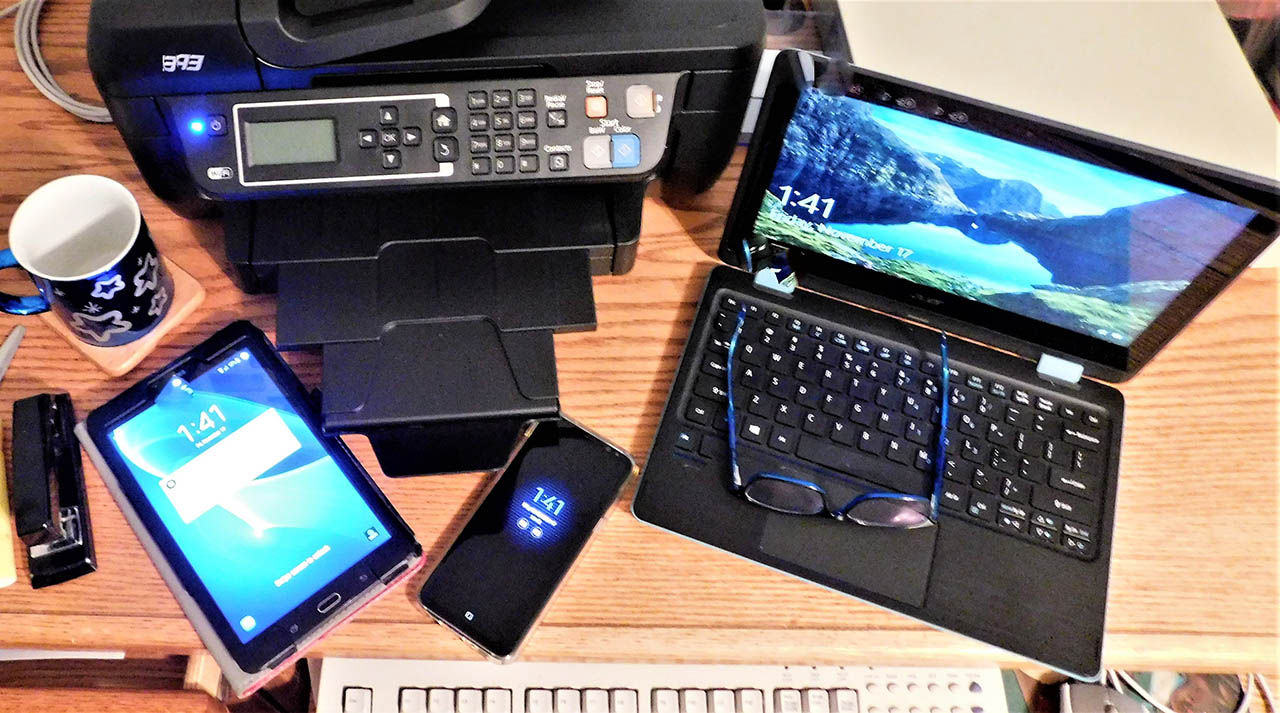Flexibility and mobility are important considerations for organizations looking to optimize their communication infrastructure. With the rise of cloud VoIP systems like Intulse with our mobile softphone app, the need for a traditional desk phone is being re-evaluated. But do you really need a desk phone for a cloud VoIP system when you have a mobile softphone app? Let's explore the factors of mobility, portability, and convenience to find out.
Desk Phone vs Softphone: Mobility
One of the primary advantages of using a mobile softphone app with a cloud VoIP system is the unparalleled mobility it offers. With a mobile app installed on your mobile device, you can make and receive calls from anywhere with an internet connection, whether you're in the office, at home, or on the go. This level of mobility enables employees to stay connected and productive even when they're away from their desks, enhancing efficiency and responsiveness.
Moreover, with the Intulse App and VoIP phone system, mobility extends beyond voice calls to include other communication features such as instant messaging, video conferencing, and presence status updates. With a mobile softphone app, your employees can access a full suite of communication tools from their mobile devices, enabling seamless collaboration and coordination regardless of where they are located.
This doesn't mean that desk phones aren't necessary. Some roles in office environments can truly benefit from the use of an advanced desk phone with accessories like headsets or sidecars. While a softphone app like the Intulse App provides all of the same functionality, sometimes it is far easier for someone to manage calls on a device designed specifically for those tasks.
Desk Phone vs Softphone: Portability
In addition to mobility, portability is another key advantage of using a mobile softphone app. Unlike traditional desk phones, which are tethered to a specific location and require physical installation, mobile softphone apps can be installed on any compatible device, offering unmatched portability and flexibility.
Granted, with Intulse you can actually take your physical desk phone with you and they'll work anywhere you can access a physical ethernet connection. But that isn't exactly portable, is it?
The portability found in mobile devices is especially beneficial for traveling employees or organizations with distributed teams. With a mobile softphone app, employees can carry their office phone system with them wherever they go, ensuring uninterrupted communication and accessibility. Whether attending client meetings, visiting job sites, or working from a coffee shop, employees can maintain a professional presence and stay connected to colleagues and clients.
The beauty of the Intulse App is that you get that same functionality whether you are using the app on a mobile device, or on a portable computer like a laptop.
Desk Phone vs Softphone: Convenience
Another reason to consider skipping a desk phone in favor of a mobile softphone app is the convenience it offers. Mobile apps are user-friendly and intuitive, with familiar interfaces that resemble popular messaging and calling apps. This familiarity reduces the learning curve for employees and encourages adoption, ensuring that they can quickly adapt to the new communication platform.
For example, the call interface in the Intulse App looks very much like a mobile device call interface.
Furthermore, mobile softphone apps eliminate the need for additional hardware and infrastructure, simplifying deployment and management for IT administrators. With no physical phones to install, configure, or maintain, organizations can save time and resources while enjoying the benefits of a modern communication solution.
An added convenience is that a cloud-based VoIP solution like Intulse offers powerful integrations that will actually provide caller information based on connections to your CRM and ChMS systems, so what you see when receiving a call is not limited to just your device contacts.
Desk Phone vs Softphone: Cost
It's also hard to deny that in the modern office if you don't need a physical phone you can actually save a substantial amount of money if you choose to use a softphone app instead of a physical phone. Whether mobile or stationary, users can make and receive calls and texts with the Intulse App, which is included by default with the Intulse VoIP phone system.
Advantages of Physical Phones or Mobile
While softphone apps offer clear advantages in terms of mobility, portability, cost, and convenience, there are still times when a physical desk phone may be preferred or even necessary. In environments where employees spend the majority of their time at a desk, such as call centers or reception areas, desk phones provide a familiar and ergonomic interface for conducting phone calls.
Additionally, some employees may prefer the tactile feedback and dedicated functionality of a physical desk phone for certain tasks like managing and transferring calls. In such cases, organizations may opt for a hybrid approach, providing desk phones for employees who require them while offering mobile soft-phone apps as a supplementary option for enhanced mobility and flexibility.
While the desk phone has long been a staple of office communication, it's safe to say that its necessity is challenged by powerful softphone apps and cloud VoIP systems like Intulse. With unparalleled mobility, portability, and convenience, soft-phone apps offer a compelling alternative for organizations looking to improve their communication and enable employees to work from anywhere. However, the choice between a desk phone and a mobile softphone app ultimately depends on the specific needs and preferences of each organization, with both options offering unique advantages in different scenarios.
Which option is right for you? Contact us today and find out!
